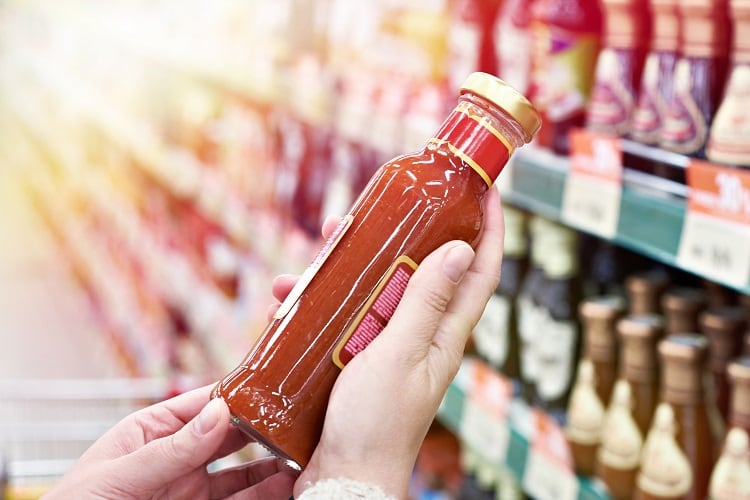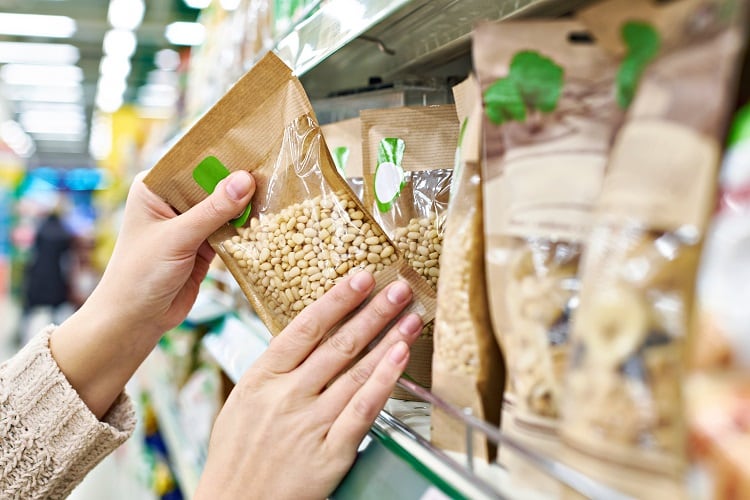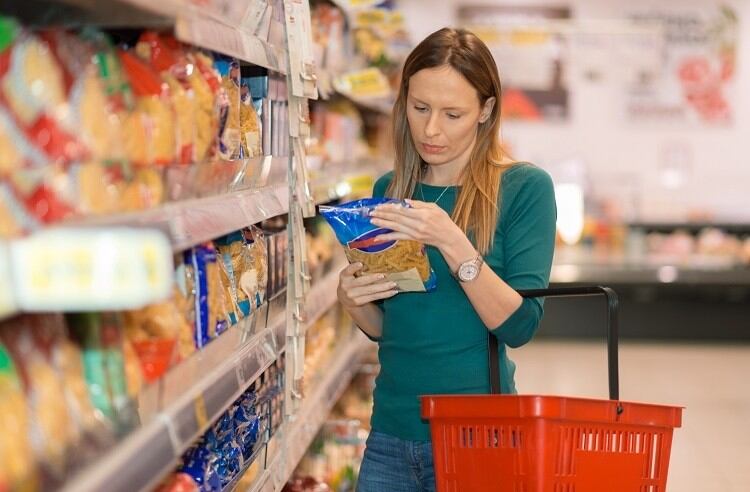Environmental labelling is tipped to be an important tool in helping empower consumers to make more sustainable food choices. In recent years, an influx of environmental labels has entered the market.
But the European Commission says a considerable share of these labels (it is estimated more than 230 different environmental labels currently exist) are based on weak verifications.
In an effort to stamp out greenwashing and misleading environmental claims, the Commission is proposing to regulate environmental labelling practices, which would see new public labelling schemes (unless developed at EU level) banned across the bloc.
Controlling eco-labelling in EU Member States
The Commission is proposing two measures to limit the proliferation of environmental labels.
First, that new private schemes should only be approved by Member States if they show higher environmental ambition than those currently on the market.
And secondly, that new public schemes – either at the national or regional level – should be banned. The exception is, of course, new public schemes developed at the EU level: the Commission is preparing to table its own sustainable food labelling framework.
The Commission’s proposal is informed by its own assessment of 232 active ecolabels in the EU. An investigation into their verification and certification aspects found that almost half of the labels’ verifications was either weak or not carried out.
Findings also suggested that consumers were not aware of the distinction between labels governed by third party certification schemes and those based on ‘self-certifications’.
The proliferation of sustainability labels and logos has already been identified a ‘persistent’ problem across the EU. In an open public consultation, over a quarter (27%) of participants agreed ‘the proliferation and/or/lack of transparency/understanding/reliability of sustainability logos/labels of products and services’ presented an obstacle in empowering consumers for the green transition.
Could a ban limit labelling scheme innovation?
Existing environmental labelling schemes on the market include Eco-Score to Planet-Score and a new labelling scheme developed by Foundation Earth, amongst others. These are based on varying methodologies, from lifecycle assessments (LCAs) to environmental footprint methods.
In the Netherlands, Wageningen University & Research (WUR) is also contributing to work on a standard methodology for measuring the environmental impact of food. Dr Koen Boone, who is Director Europe of The Sustainability Consortium and a member of WUR staff, is involved in the project. Although Dr Boone is yet to study the proposal in full, he offered preliminary comments on the Commission’s intentions.
Overall, the researcher supports the Commission’s move to limit the number of eco-labels by setting minimum criteria, so that consumers can be sure labels truly prove a better environmental performance.
He is less convinced, however, by the Commission’s move to ban new private labels that do not show a higher environmental performance than all others from entering the market. “This may limit innovation and segmentation of consumers,” he told us, adding he is intrigued to further study the Commission’s reasoning.

Planet-Score, an eco-label currently working with more than 200 brands in 12 EU countries, uses data from LCA databases, amongst many other inputs for sustainability assessments including pesticide use, carbon sinks, non-circularity of fossil energy use in food production, off-season production, biodiversity and positive impacts on nature and ecosystems, GMOs, and animal welfare. The team behind the labelling scheme told us it supports a potential ban on new ecolabels saturating the market, but at the same time ‘strongly’ feels that diversity and plurality are essential to promote sustainability efforts and foster continuous improvement of assessment tools.
For its part, Planet-Score is confident its methodology is up to scratch. “Our label is congruent with what is stated in [the proposal], namely transparency, science-based methodology, added value, and backed up by solid evidence and endorsed by consumer associations and NGOs,” a Planet-Score spokesperson told FoodNavigator.
A potential move away from Product Environmental Footprint?
Within the proposal, the Commission suggests a potential move away from a standard methodology, such as an environmental footprint method, to substantiate environmental claims for all goods.
Product Environment Footprint (PEF) – a multi-criteria measure of the environmental performance of a good or service through its lifecycle – is one such standard methodology currently used in the market.
While the Commission acknowledges that environmental footprint methods can help businesses identify the areas within their operations that need improvement, it concluded that they fail to cover all relevant impact categories for all product types. In food and agricultural products, for example, it said farm level biodiversity and natural protection, as well as different farming practices, are not taken into account. It can also be problematic for fish and textiles.
As a result, the Commission is not pursuing the option of one standard methodology to substantiate environmental claims for its own food labelling framework. Rather, a ‘more flexible’ approach is the preferred policy option.
Planet-Score told us it was ‘fully aware’ that PEF was not the right tool for substantiating green claims, especially for food, fish and textiles. “Hence, we are very happy that this reality is made clear in the text, and that there is no such perspective as a ‘harmonised standard based on the PEF’,” a spokesperson told us.
“There are other metrics which are much more relevant, used in conjunction with the PEF or not, and we think that Planet-Score has clearly the most demanding, transparent, science-based, and independent methodology for the food sector.”

IFOAM Organics Europe welcomes the Commission’s position. “The PEF method is indeed not designed to reality of complex agri-food systems in a multi-dimensional way,” said Jan Plagge, IFOAM President. “The PEF does not properly consider the use of inputs like pesticides, negative and positive externalities of different agriculture production methods on biodiversity, soil quality, deforestation nor planetary boundaries.”
As to which methodologies should be used, IFOAM is calling for an ‘open debate’ on the best ones to provide detailed, fair, and unbiased information to consumers on the environmental impacts of different methods of production of agri-food products. “[While] at the same time considering the key concerns of European citizens and the priorities of the Farm to Fork and Biodiversity strategies.”
For the proposed Green Claims Directive to become law, it will first need to be approved by the European Parliament and the Council, as per ordinary legislative procedure.




